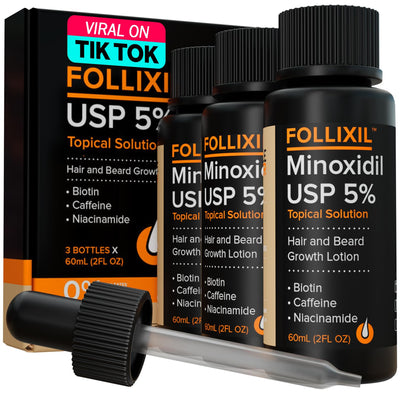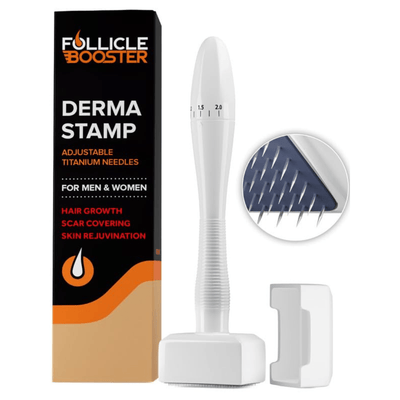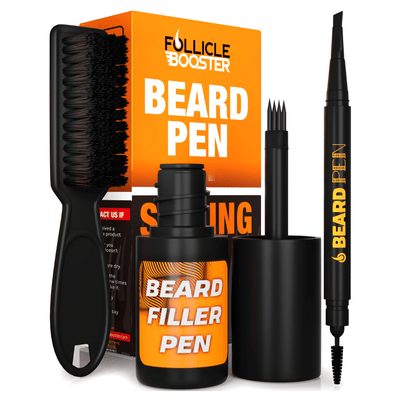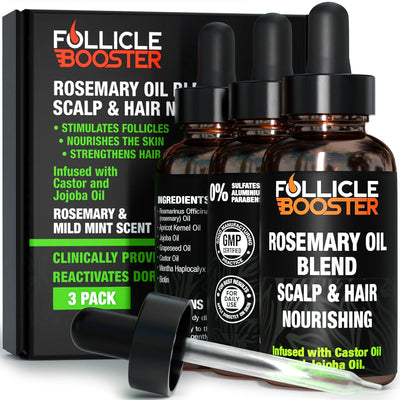Hair loss is a common concern for both men and women, and countless individuals have sought effective solutions to combat this issue. Minoxidil, a topical medication, is one of the most widely used treatments for hair loss. However, a question frequently arises whether one needs to use minoxidil indefinitely to maintain the results. This blog post will explore the topic and provide a comprehensive understanding of using minoxidil to fight hair loss.

Understanding Minoxidil:
Minoxidil is an FDA-approved over-the-counter medication primarily used to treat androgenetic alopecia, known as pattern hair loss. Minoxidil promotes hair growth and increases the blood flow to the hair follicles, which stimulates hair regrowth in individuals experiencing hair thinning or balding. It is available in liquid and foam formulations and applied directly to the scalp.
Minoxidil's Effectiveness:
Numerous studies have demonstrated the effectiveness of minoxidil in slowing down or reversing hair loss. However, it is essential to note that minoxidil does not work for everyone, and individual results may vary. Some individuals may experience significant hair regrowth, while others may only see minimal improvement. Setting realistic expectations and consulting with a healthcare professional for an accurate assessment of your situation is crucial.

Maintenance of Results:
When using minoxidil, it is necessary to understand that hair loss is often a chronic condition. Minoxidil can help stimulate hair growth and maintain existing hair, but it does not cure the underlying causes of hair loss. Therefore, if you stop using minoxidil, the hair regrowth achieved through its application may gradually diminish, and you may experience a return to your pre-treatment hair loss state.
Discontinuing Minoxidil:
While some individuals may discontinue minoxidil after achieving good hair regrowth, it is essential to consider the potential consequences. Stopping minoxidil can lead to a shedding phase called "minoxidil withdrawal," where the hair follicles previously stimulated by the medication enter a resting phase and subsequently shed. This shedding is often temporary and does not mean that permanent hair loss will occur. However, it can be disheartening for individuals who have experienced improved hair growth.
Long-Term Use of Minoxidil:
For many individuals, long-term use of minoxidil is a viable option to maintain their desired hair growth. Continuous application of minoxidil helps sustain the effects and may prevent further hair loss. It is essential to recognize that minoxidil is not a permanent solution but a long-term treatment that requires ongoing use to preserve the results.

Alternative Treatments:
In addition to minoxidil, several other treatments and interventions are available for hair loss, such as oral medications like finasteride, hair transplant surgery, and low-level laser therapy. These options can be discussed with a dermatologist or a hair loss specialist to determine the most suitable approach for your needs.

Conclusion:
Minoxidil is an effective treatment for hair loss, and it can help stimulate hair regrowth and slow down the progression of hair thinning. However, it is crucial to understand that minoxidil requires ongoing use to maintain the results. Discontinuing the treatment may lead to a gradual reversal of the hair regrowth achieved. Suppose you are considering using minoxidil or any other hair loss treatment. In that case, it is advisable to consult with a medical professional to evaluate your situation and determine the most appropriate course of action.










